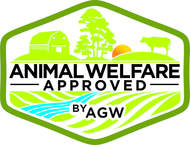|
As a former futures broker, I still read the financial news and I can’t get over how much money (and I’m talking about Trillion with a capital T!) is flowing into climate change technologies.
In a market-based system, you can invest in climate change tech ideas with the possibility to make (or lose) money. There are even contests run by billionaires on the best ideas for drawing down carbon from the atmosphere. Electric cars, solar power, wind turbines are all now mainstream energy production as well as ways we can slow the warming of the planet. However, on the agriculture side we have lagged behind other sectors in the economy. Some newer agriculture inventions or “ideas” to draw down carbon span from absorbing methane through burp masks for cows to precision agriculture and small rocks that can absorb carbon from the air. My intuition and experience tells me most of these ventures will fail. I have a technology that I believe will beat all these inventions. Are you listening Elon Musk and Bill Gates? Here is the Shark Tank “investment”! Every living creature (humans included) produces CO2 via respiration. Cows produce methane from the burping of their digestive system. They are one of the few animals, called ruminants, which have a superpower of turning a non-digestible plant (grass), into protein (milk, meat). Humans produce methane too with their waste (excretions and wastes that go into landfills), but it’s much easier for humans to point fingers than for cows to point hoofs! And cows get a bad rap. But back to the investment point! UW-Madison recently published a paper comparing 3 different cropping systems: 1. Corn and Soybeans, tilling the field and no cover crop 2. Corn and Soybeans, no till and using a cover crop 3. Managed Grazing cows on pasture They found that a managed grazing pasture system (or a different way of managing a cow) showed a carbon capture of 5.3 tons of CO2 per acre per year. All you need for this system to work is grass, cows and proper management. The result is a reduction in CO2 emissions and the production of healthy meat and milk with the byproduct of methane (as cows burp while converting grass to protein). The paper is here should you want to learn about various farming systems and how much carbon they produce. It’s quite an interesting read! Research from UC-Davis shows that a cow produces 220 lbs of methane in a year. Stick with me here as we do some basic math… 1 cow = 220 lbs. of methane / year Methane is 28 times more potent than CO2. 220 lbs. of methane x 28 = 6,160 lbs. of CO2 equivalent. 6,160 lbs. of CO2 / 2000 (1 ton) = 3.08 tons of CO2 a year produced by the cow from the production of meat and milk. Earlier we gave the UW-Madison findings of the pasture system, which captures 5.3 tons of CO2 per year per acre. If one cow emits 3.08 tons per year, the result is a net capture of 2.22 tons of carbon per year/per cow/per acre. 5.3 tons of capture - 3.08 emissions = 2.22 tons of carbon capture At our farm, the numbers may be even better. We have 120 acres grazed with 60 cows (30 cows, 30 yearlings +30 calves). A yearling + a calf = 1 cow in weight. 120 acres / 60 cows = 2 acres per cow. Therefore, our capture is roughly 2x the capture of 1 cow per 1 acre which comes to 4.44 tons of carbon capture per acre. You hear that Elon and Bill?! Now that’s a carbon capture machine that can be replicated AND it produces food for humans as a bonus! Wall Street won’t find this technology sexy because the rural grazing community controls it, and let's face it, there's no money in it for them! But what’s not sexy about higher omega 3’s, greater nutritional density, biodiversity, and water quality? I'll take this carbon capture machine over any system out there, bet on it! Written by: Paul Maggio
0 Comments
Your comment will be posted after it is approved.
Leave a Reply. |
AuthorMarisa usually writes about nutrition, grass fed beef, organic agriculture, as well as sharing delicious recipes; Paul writes about farm work- sharing his stories and experiences, and most times... we both collaborate on the stories! Archives
March 2024
Categories
All
|
 RSS Feed
RSS Feed


